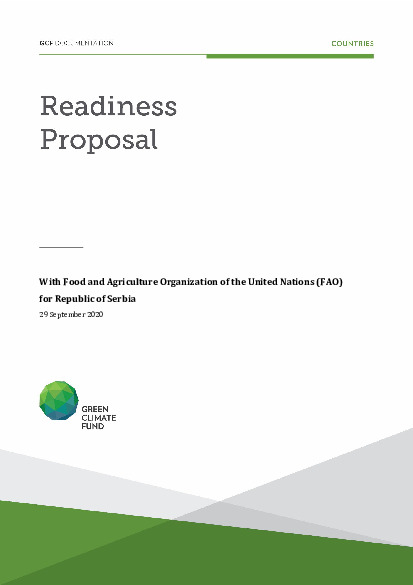Strengthening Serbia’s capacities for strategic engagement of private sector into climate financing

Strengthening Serbia’s capacities for strategic engagement of private sector into climate financing
Serbia is highly exposed and vulnerable to natural hazards as a result of climate change. As stated in the Intended Nationally Determined Contributions (INDCs) the most vulnerable sectors in the Republic of Serbia are agriculture, hydrology, forestry, as well as human health and biodiversity. In parallel Serbia committed itself to the GHG emission reduction of 9.8% until 2030 compared to base-year emissions, which requires significant investments especially in the energy sector that is still state owned. Assessment shows that for the GHG emission reduction will be needed investment of app.10 million EUR up to 2020, that increase on more than 20 million EUR up to 2025.
Thus, in order to reduce risks, losses and damages caused by extreme climate and weather events and reduce GHG emissions, targeted investments, especially from the private sector will be needed. In order to ensure sustainability, strategic engagement of all actors, including private sector is a precondition.
In this context, the Republic of Serbia has identified in its Country Work Programme (until 2025) energy, agriculture, water resources and hydrology and forestry as the priority sectors for cooperation with the Green Climate Fund. Therefore, in order to achieve the goals to raise awareness in the general public, engage with private sector and facilitate direct access, to implement priority investments in the above mentioned sectors, the support of the Green Climate Fund (GCF) under a second Readiness proposal is needed.
This second GCF Readiness and Preparatory Support Programme proposal is based on findings and progress achieved under the first Readiness grant (implemented by UNEP), and will complement the expected outcomes of the NAP proposal (to be implemented by UNDP).